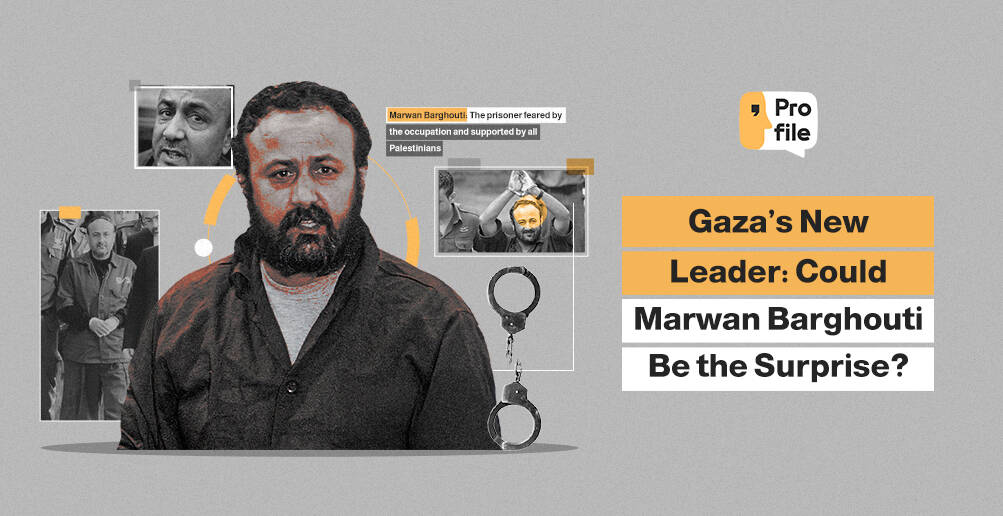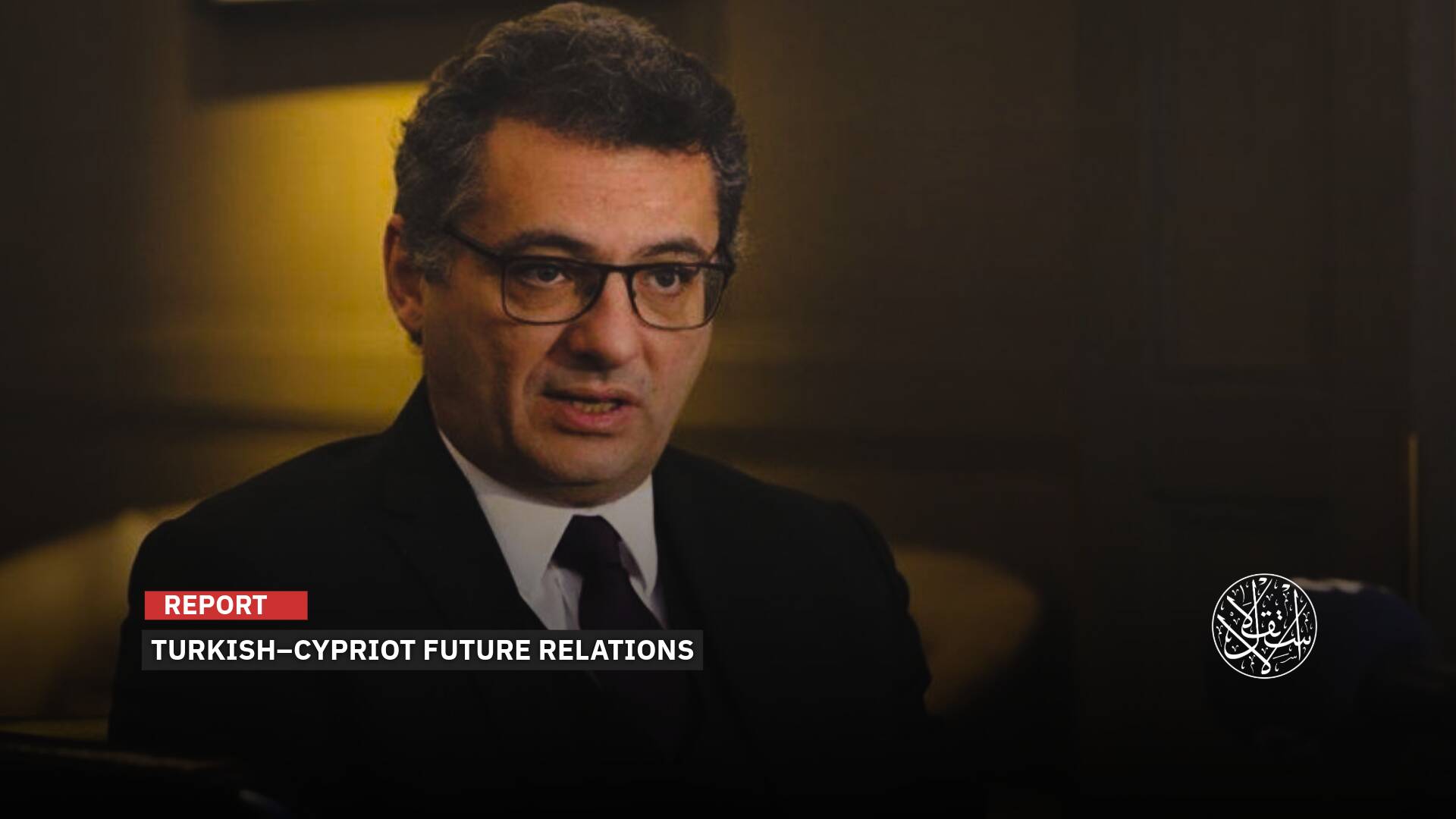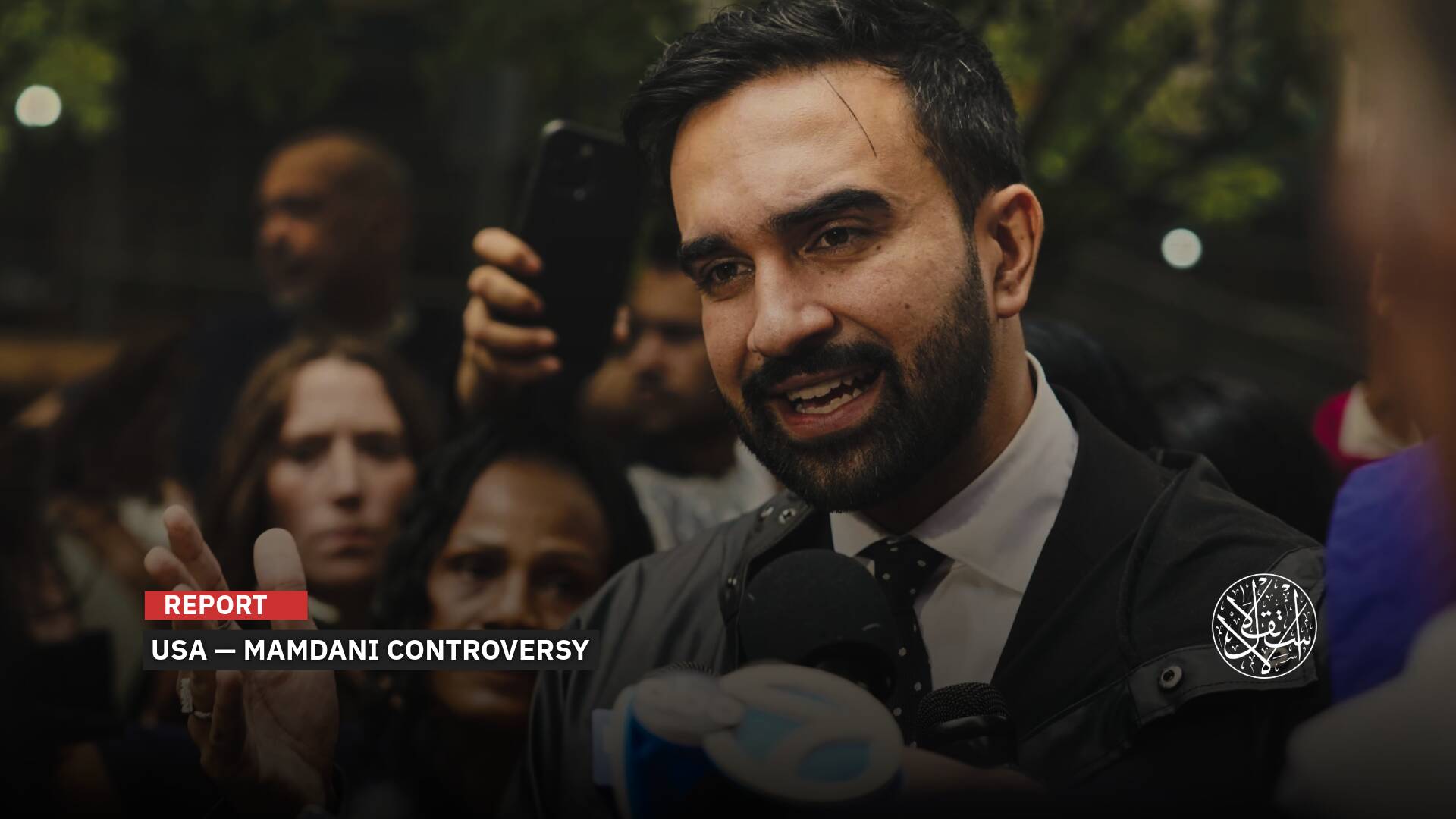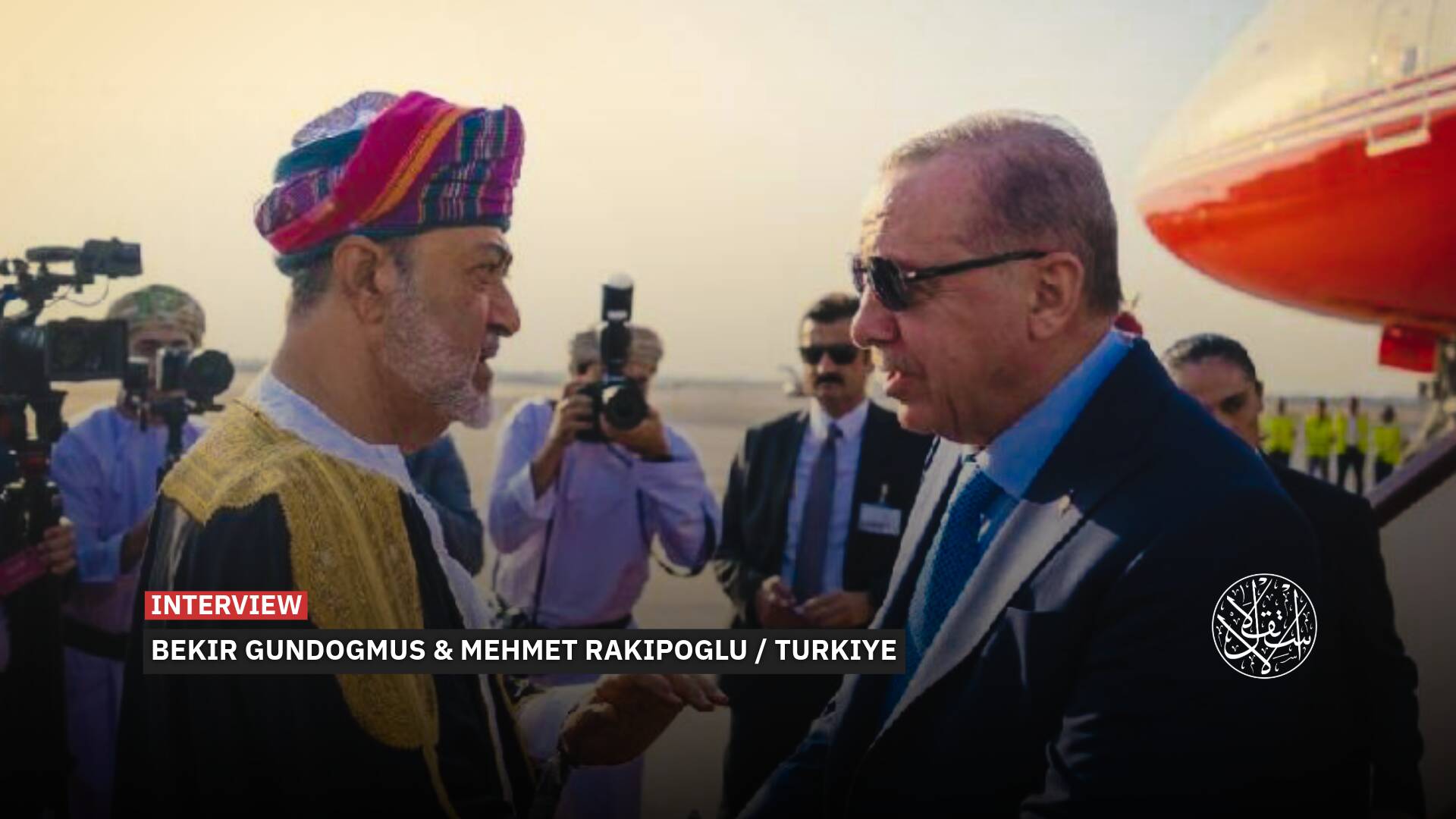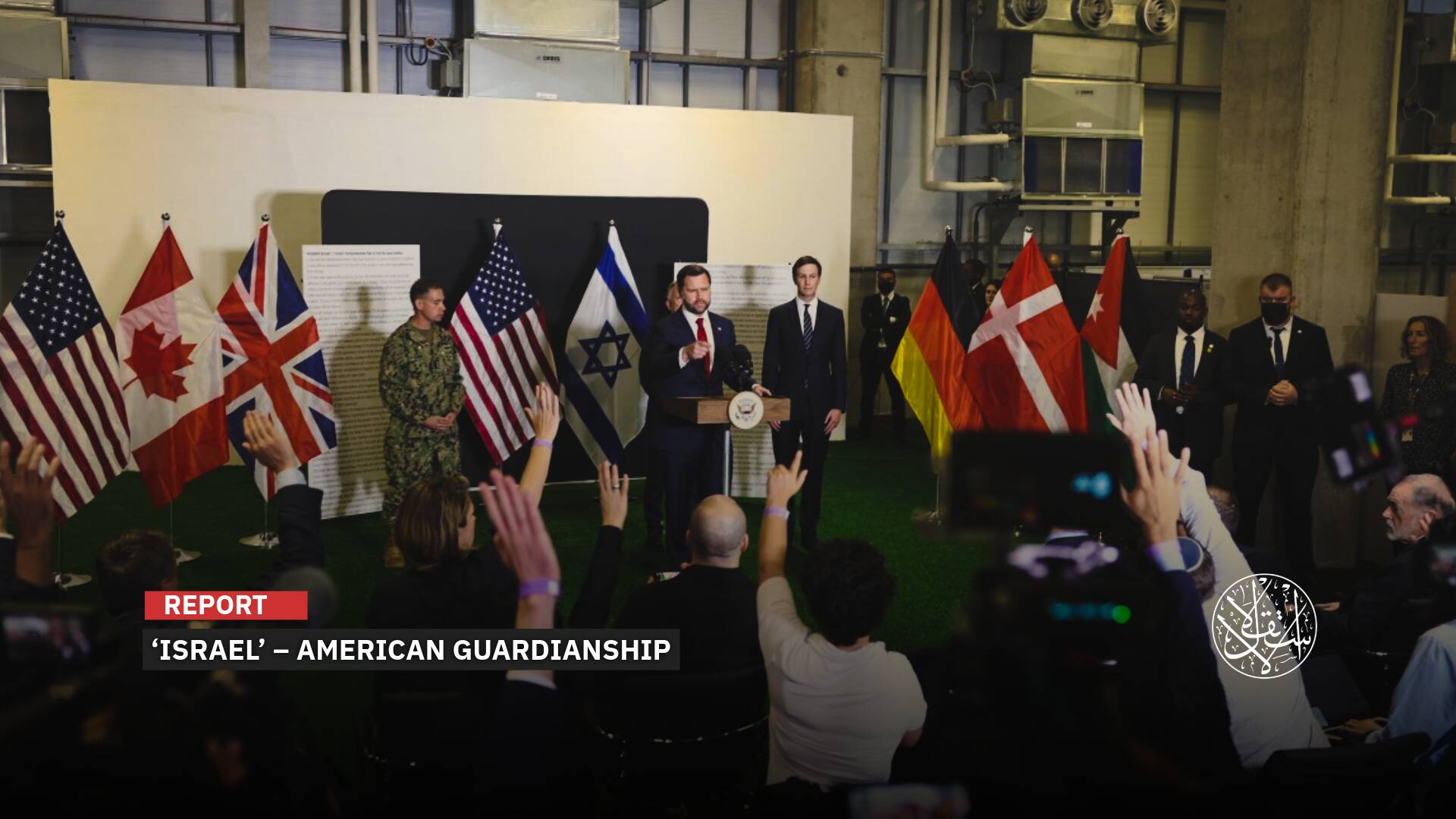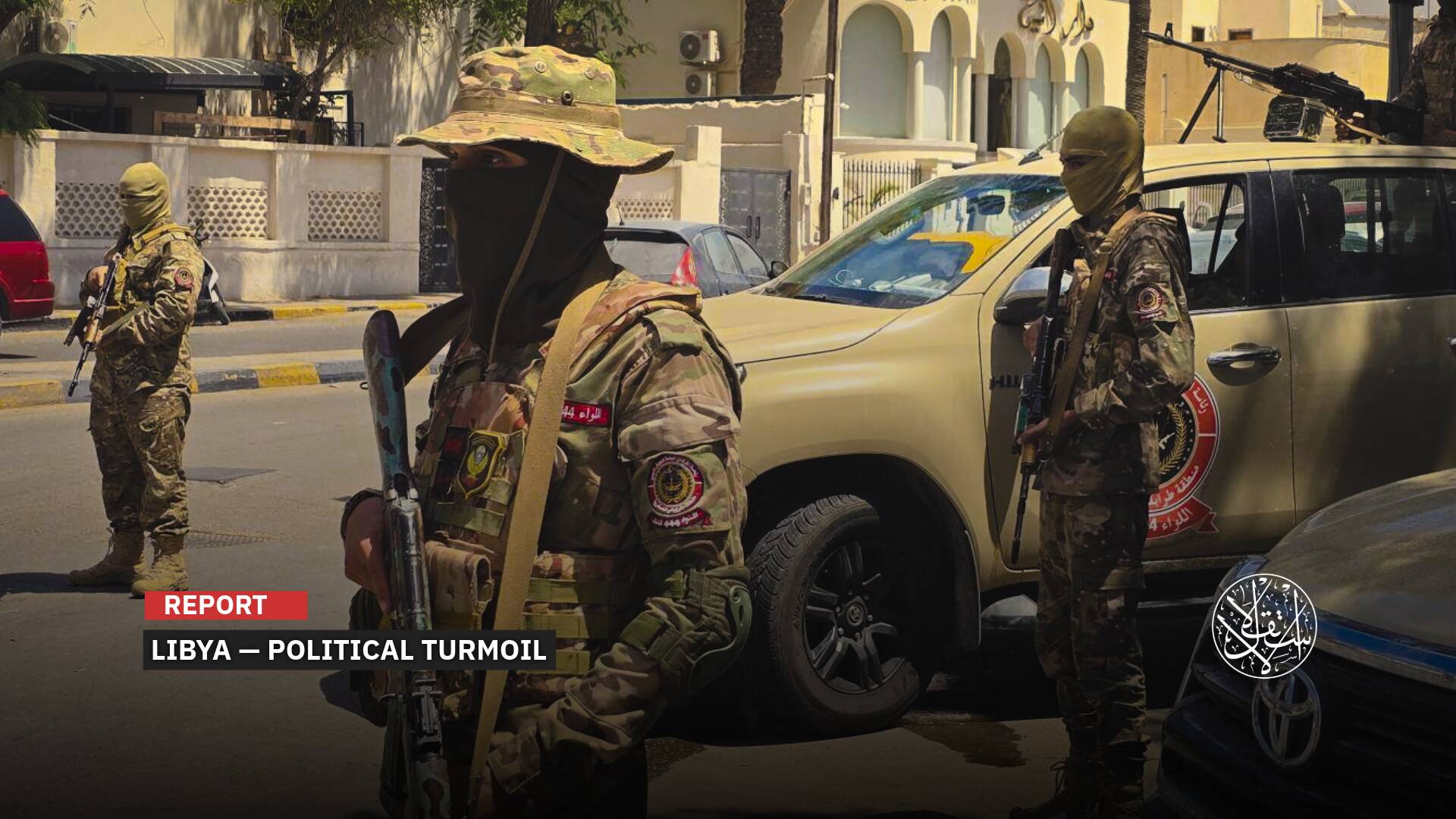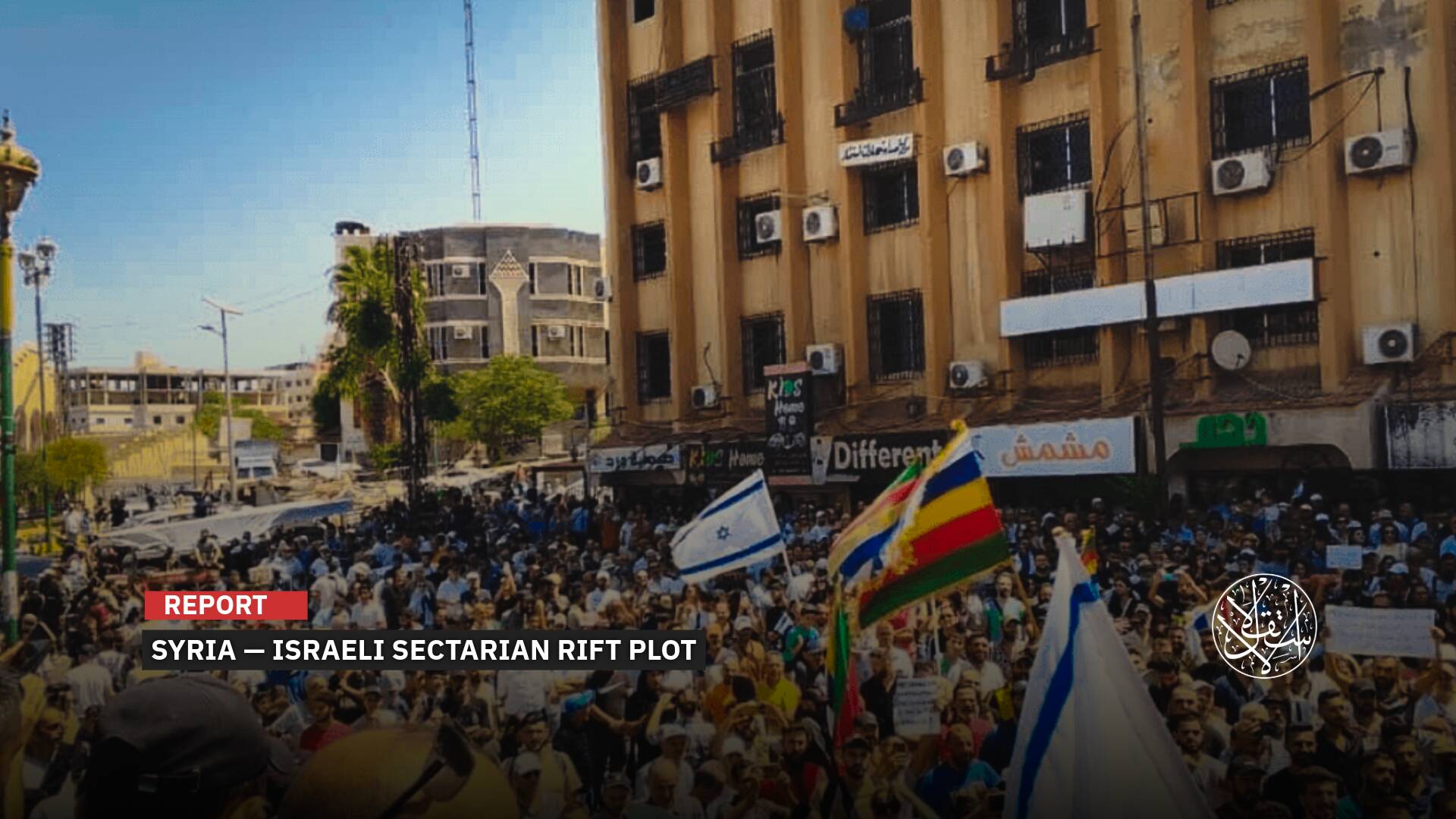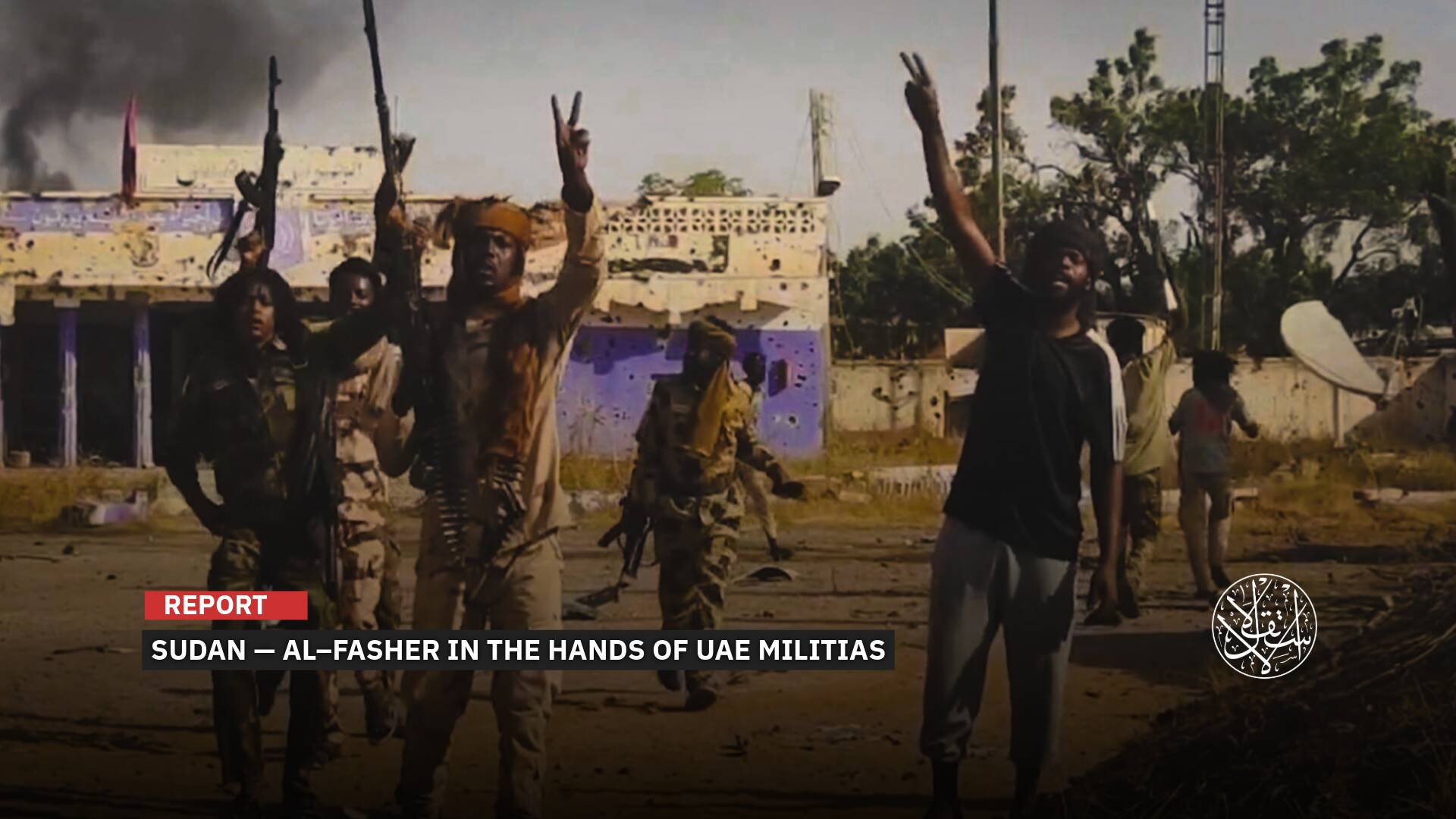Trump's Gaza Statements: Distractions Masking the Real Plan

“Trump will deceive the world into believing he has abandoned his fabricated deportation plan for the sake of normalization.”
Given the unrealistic nature of U.S. President Donald Trump's plans to displace Gaza's Palestinians and claim ownership of the enclave, Western analysts have questioned whether this is his true intention. They suggest his statements may be mere smokescreens to conceal other objectives.
Israeli newspapers and politicians echoed this view, questioning whether displacement was truly Trump’s goal, as it remains an unrealistic option that the Palestinians in Gaza would never accept.
They pointed out that Trump’s pressure regarding displacement is part of his plan to push for Israeli-Saudi normalization without insisting on the establishment of a Palestinian state, instead settling for “ensuring Palestinians stay on their land.”
Meanwhile, Saudi Arabia has shown unusual rigidity in its stance on Trump’s displacement and normalization plans. Consequently, Trump has intensified his pressure and continues to make unrealistic statements.
In their joint press conference on February 5, 2025, Trump and Netanyahu attempted to entangle Saudi Arabia by claiming that future normalization of relations between “Israel” and Saudi Arabia was inevitable and “would happen.”
However, Saudi Arabia issued an extraordinary statement at dawn, not waiting for morning, affirming that its stance on the establishment of a Palestinian state was “firm, steadfast, and unwavering, and is not subject to negotiation or bargaining.”
It stressed that “this firm position is non-negotiable and not open to bargaining,” rejecting displacement plans and countering Trump’s pressure to accept normalization in exchange for halting such efforts.
Normalization by Pressure
Two Israeli political analysts interpreted Trump’s “displacement remarks” in a similar way, confirming that the goal was to pressure Saudi Arabia to accept normalization.
Israeli political analyst Daphna Liel of Channel 12 stated that the prevailing view in “Israel” is that Trump is steering the conversation toward something else, which is “normalization.”
“Trump is making a dramatic threat by discussing the displacement of Gaza’s Palestinians so he can use this as leverage in negotiations over normalization,” she said.
“Trump is seeking ‘Abraham Accords 2,’ and his comments on displacement echo what happened during ‘Abraham Accords 1,’ when he spoke of annexing the West Bank, only to later remove it from the equation in order to please Gulf countries and push them to normalize relations with Israel.”
The Israeli analyst highlighted that this time, Trump is using the idea of emptying Gaza and displacing its residents as a bargaining chip, particularly if it becomes evident that normalization between “Israel” and Saudi Arabia faces significant obstacles.
In “Israel,” it is believed that the talk of displacing Gaza’s Palestinians is a diversion from the actual goal, which is normalization, especially since after the Trump-Netanyahu meeting, there were no clear agreements regarding the second phase of the prisoner exchange.
Political analyst Barak Ravid, writing for both Walla and Axios, said part of Trump’s Gaza displacement plan “is related to pressuring for Israeli-Saudi normalization.”
Ravid quoted a U.S. source close to Trump as saying, “It was Trump's own idea and he had been thinking about it for at least two months,” linking it to Israeli-Saudi normalization.
An Israeli expert told i24 Channel that the displacement issue is a fabricated illusion created by Trump for the sake of normalization between Saudi Arabia and “Israel.”
“Trump will deceive the world into believing he abandoned the fabricated deportation plan for the sake of normalization,” he said.
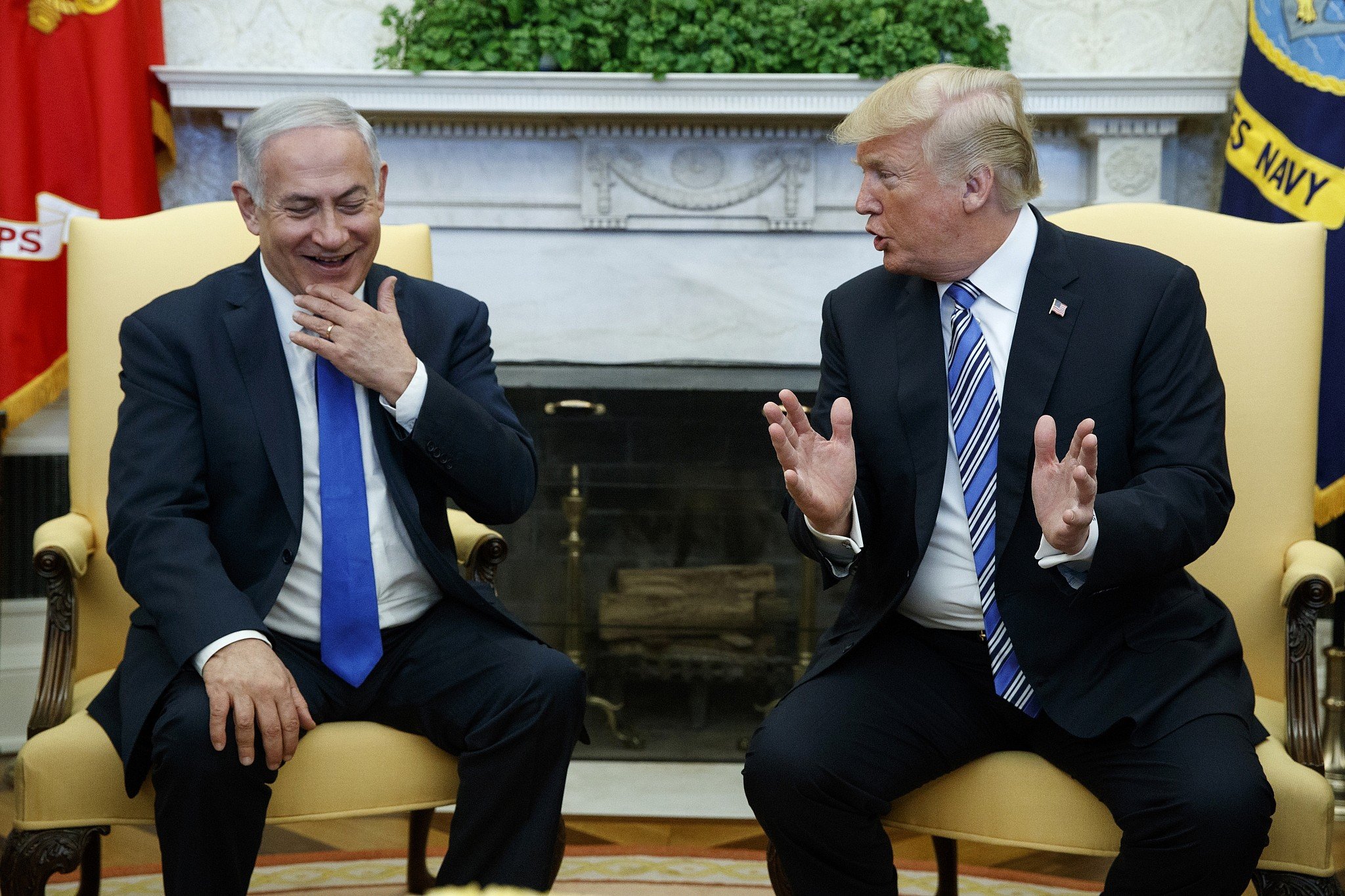
Maariv reported on February 5, 2025, that many commentators believe President Trump relies heavily on his "chaos strategy," a doctrine through which he turns disorder into victory.
Fleur Hassan Nahoum, the U.S. State Department’s Special Envoy and Senior Researcher at the Misgav Institute for National Security and Zionist Strategy, said, “This is not a policy of chaos, but rather a clever negotiating strategy.”
“Now, Arab countries need to show Trump what they can do to be part of the solution, not part of the problem.”
This means accepting normalization in order to be part of the solution to the displacement issue, rather than being part of the problem if Trump insists on displacement and embarrasses these regimes before their own people.
Maariv claims that Trump’s announcement of displacement led Saudi Arabia to declare its willingness to abandon the demand for the establishment of a Palestinian state.
Israeli analyst Amir Tibon, in an analysis published by Haaretz titled “The Fate of Trump's Gaza Bombshell Will Be Decided in Saudi Arabia,” said Donald Trump believes rich Arab countries could fund his idea of turning Gaza into the Riviera of the Middle East.
However, only 90 minutes after his remarks, Saudi Arabia released a lengthy statement rebuking the plan.
Tibon emphasized that after Trump won the U.S. presidential election last November, “the conventional wisdom was that his main priority in the Middle East – securing a normalization agreement between Israel and Saudi Arabia – would be decided in Gaza.”
“That's in part what led him to push for a cease-fire and hostage release deal even before entering office.”
Belal Shobaki, head of the Political Science Department at Hebron University, also speculated that “Trump is leveraging the issue of displacing Gaza’s Palestinians to weaken Palestinian aspirations, whether in Gaza negotiations or the pursuit of statehood.”
“Instead of the Arab nations demanding the establishment of a Palestinian state first, followed by normalization, Trump altered this to frame the non-displacement of Palestinians as the justification for normalization,” Shobaki told Anadolu Agency.
Will His Plan Succeed?
As soon as Trump claimed that “Saudi Arabia does not require the establishment of a Palestinian state for normalization,” the Saudi Foreign Ministry responded with a statement making it clear that “there will be no normalization without the establishment of a Palestinian state, and no displacement of Palestinians from their land.”
This firmly rejects Trump’s equation of normalization in exchange for displacement.
The remarks made by former Saudi Ambassador to the U.S. and the U.K., Prince Turki al-Faisal, during an interview with CNN’s Christiane Amanpour on February 5, 2025, were a clear indication of Riyadh's rejection of linking displacement with normalization.
The reason behind Saudi Arabia's strong stance is attributed by a former Egyptian ambassador in a statement to Al-Estiklal, who explained that “Saudi Arabia offered $600 billion in investments in the U.S., and Trump hoped to increase it to a trillion. As a president, he acts like a businessman and contractor, so he will not confront them to secure the funds.”
“The funds pledged by Saudi Arabia, which Trump had hoped to secure in greater amounts, may have been announced by Riyadh as a pressure tactic against his well-known plans.”
The source believes that the money is more important to Trump than normalization, and if Saudi Arabia rejects normalization or links it to displacement and insists on some form of a Palestinian state, Trump might find himself in a position where silence and acceptance of the money become his only option in the end.
Prince Turki al-Faisal, when asked whether he sees Saudi normalization with “Israel” happening after Trump’s plan regarding Gaza control and “long-term ownership,” categorically denied it, saying absolutely not.
He emphasized that his country's stance, both before and after the Operation al-Aqsa Flood, has consistently been that the path to peace lies in the establishment of a clear Palestinian state. He said they are not engaging with the Israelis, but rather with the Americans, a position that has remained firm.
Prince Turki also told CNN, wearing a Palestinian keffiyeh, that what Trump said is inconceivable, and it’s a fantasy to think that ethnic cleansing in the 21st century could be tolerated by the global community.
The issue in Palestine is not the Palestinians, but rather the Israeli Occupation, according to him.
These official Saudi positions not only reject Trump’s displacement for normalization plan but also reject normalization unless it is linked to some form of a Palestinian state. Saudi Arabia's strong stance is backed by what it will push for in its dealings with Trump.
This idea is implicitly supported by Israeli analyst Zvi Bar’el, who wrote in Haaretz on February 4, 2025, that Trump and Netanyahu's aspirations for normalization have a price, and “Riyadh will set it.”
“Saudi Crown Prince Mohammed bin Salman has spent years rehabilitating his image from regional strong man to a careful Middle East diplomat, and will likely seek a significant Palestinian component to normalize relations with Israel,” Bar’el said.
Until October 7, 2023, normalization between “Israel” and Saudi Arabia was seen as tied to Saudi demands from the U.S., such as a defense alliance and access to U.S. nuclear technology. However, the situation has now changed, according to the analyst.
No Reward for ‘Israel’
Trump, through his proposed normalization plans, sought to reward “Israel” for signing a ceasefire agreement in Gaza. However, the chances of this normalization, which Trump hopes for, are uncertain.
A study by Foreign Affairs on January 22, 2025, confirmed that Arab normalization with the Israeli Occupation remains mere paper peace.
The Abraham Accords were originally designed as a means to bypass the Palestinian issue.
As a result, the chances of the American-Israeli axis successfully revitalizing the normalization process, expanding the scope of the Abraham Accords and its appendices, by trying to include Saudi Arabia and possibly Qatar, appear very slim and unreliable for various reasons.
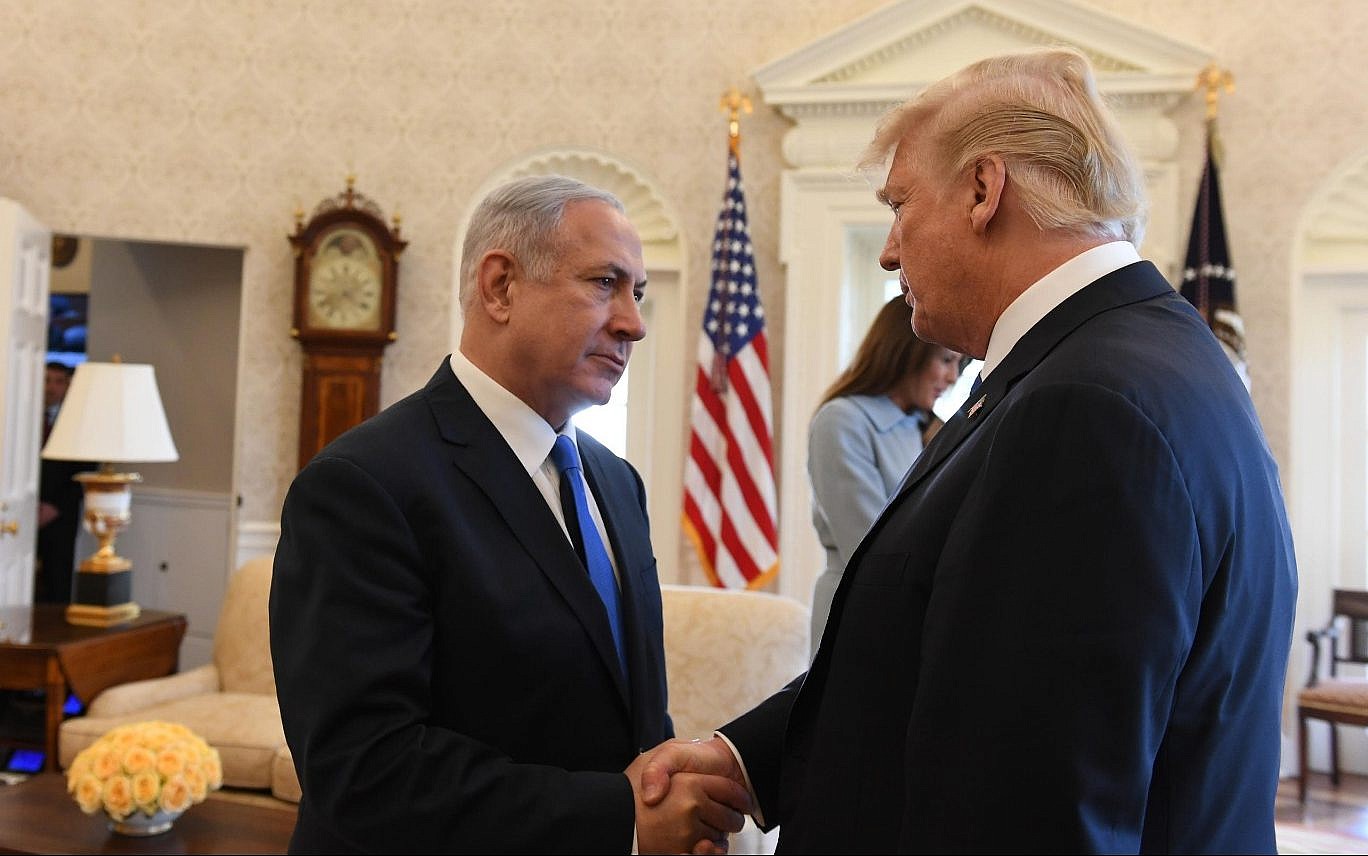
Foreign Affairs (FA) cast doubt on “Israel” reaping the rewards of normalization, arguing that “normalization without the Palestinians won’t bring stability to the Middle East.”
“Claims that Arab countries could leverage their budding relations with Israel to advance the cause of the Palestinians or that of a two-state solution have simply never materialized,” as per FA.
Neither Bahrain, Morocco, nor the UAE took the initiative to intervene with “Israel” to prevent home demolitions, or to stop the evacuation of Palestinians from their homes in East Jerusalem, nor did they oppose the unprecedented settlement expansion and settler violence across the West Bank.
Emirati officials also did not use their presumed influence to intervene regarding the Israeli assault on Gaza, which has already resulted in nearly 50,000 Palestinian civilian lives and the destruction of most of Gaza’s buildings.
FA emphasized that the Trump administration should learn from the failure of the Abraham Accords .
The magazine suggests that the Gaza War could tear apart the Abraham Accords, which were signed in 2020, or at least place them on hold.
The Saudis have significantly raised the price of normalization with “Israel” since the Hamas attacks and the subsequent Israeli genocide on Gaza.
Whereas Crown Prince Mohammed bin Salman previously sought only a “verbal commitment” from “Israel” on a Palestinian state, Riyadh now demands concrete steps toward the establishment of a fully realized Palestinian state.
Sources
- Trump's Gaza shock wave stuns Middle East and some in White House
- Analysis | The Fate of Trump's Gaza Bombshell Will Be Decided in Saudi Arabia
- Analysis | Trump and Netanyahu's Aspirations for Normalization Come at a Price. Riyadh Will Set It
- The Fallacy of the Abraham Accords
- Expert: Implementing Trump's plan on Gaza is difficult and aims to lower Palestinian ambitions [Arabic]
- Analysis: Trump's plan to displace Gazans aims to pressure for Israeli-Saudi normalization [Arabic]
- Saudi Arabia issues a statement on its stance regarding a Palestinian state following Trump's remarks on Gaza [Arabic]


